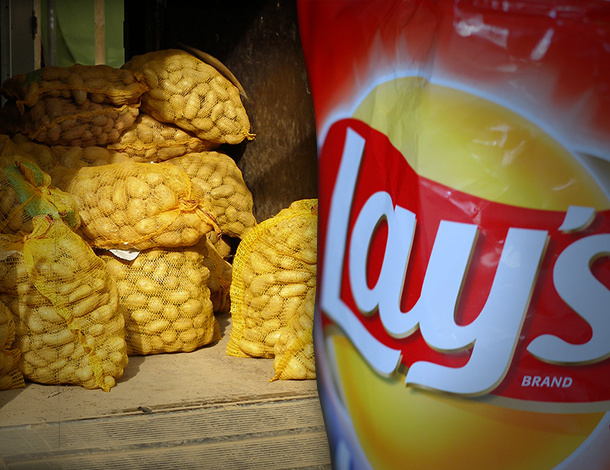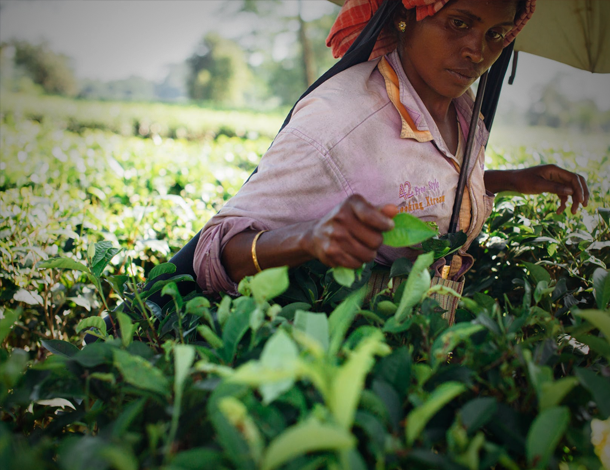As the global humanitarian agency CARE shared ground breaking news a few weeks back, I bet a couple of people were munching on their favorite flavor of Lays chips and washing this down with an ice-cold Pepsi drink.
For this group of people, every sip and munch may have generated an additional feeling of satisfaction knowing that PepsiCo Foundation had committed a whopping $18.2 million grant to implement a female empowerment program to support women farmers. For years, feminists have been asking Where is the Money for women’s rights. Perhaps, this could be it!

But another group of people, myself included, were following unsavoury happenings in another part of the world. A related headline, not necessarily in a breaking news fashion, would make rounds in India and later hit global media platforms: “Potato farmers cry foul as PepsiCo sues them”. A subsidiary of Pepsi had decided to take four peasant farmers to court for allegedly growing Lays trademarked potato seed varieties.
When I saw this, several questions came to my mind including the very obvious.
How does a farmer know that the seeds they are growing are patented? How about seed contamination, when seeds are carried across neighbouring fields through cross-pollination, wind or waterways? If they indeed were summoned to court, what are the chances of the peasant farmers winning in a court proceeding of this nature in the circumstances? In this David-versus-Goliath court battle, that PepsiCo would later retract from, would linguistic, cultural, financial issues stand in their way of justice? After all, Pepsi sought reparations of approximately USD 143,000 from each of the farmers who probably own just a few acres of land.
My mind then shifted to a second nature of questions that would only get answered if I were a fly in the wall of CARE boardrooms. I wondered how many cups of coffee were made, how many lost Skype connections and how many animated debates were had before PepsiCo arrived at a decision to offer this generous grant to CARE. Did they make the decision based on the fact that such flexible funding is like an oasis in the desert of funding for women’s rights work (or lack thereof)? Did they debate the fact that women’s rights organisations are extremely underfunded? So underfunded in fact that the average amount of funding that women-led organizations receive annually is under USD $20,000 and less than USD $5,000 for young feminist groups.
Surely, they must have considered [all] this to great extent.
In an interesting succession of events, for example, did PepsiCo Foundation seal the deal as their subsidiary in India went after the peasant farmers with the proverbial long arm of the law? Did the same pen that signed off the press release with colorful wording, sign off legal documents that would drain off all color in the world of the Indian peasant farmers? Is the signature that signed off on the legal documents similar to the one that signed legal documents approving PepsiCo’s distasteful advertisement that trivialized the political gains of #BlackLivesMatter – a movement that brought global attention to the killings of Blacks by police in the United States?

Nothing new under the sun
Like you, I clearly have more questions than answers, but in Africa we say there is nothing new under the sun. What we know for sure is that corporations are frequently and progressively using their economic power for cultural and political gains. At a World Health Assembly resolution to encourage breastfeeding in May 2018, United States delegates pushed for language that protected interests of infant-formula companies. Later in September 2018, an international tribunal condemned a decision made by Ecuador’s court system to issue a USD $9.5 billion judgement against Chevron Corp for environmental violations.
Corporate money is seductive, but how did we end up with most of the world's wealth being concentrated in the hands of the corporations? From the extractive sector to seed sovereignty to breastfeeding laws, corporations are surely but certainly abusing their power to violate human rights and harm the environment, while positioning themselves as a generous donor for civil society and social movements. This is a contradiction many organizations - from smaller NGOs to UN agencies - are facing, because of lack of funding from other sources.
Resisting corporate power is a feminist issue
As mobilisation calling for corporate accountability intensifies, feminist funders have an important role to play in supporting the security of organisations. By stepping up the quantity and quality of funding available for women’s rights issues, they can help organisations navigate some of these long-held contradictions. More importantly, feminist funding will offer movements financial and political freedom to disrupt how power is held over [and away] from social movements.
